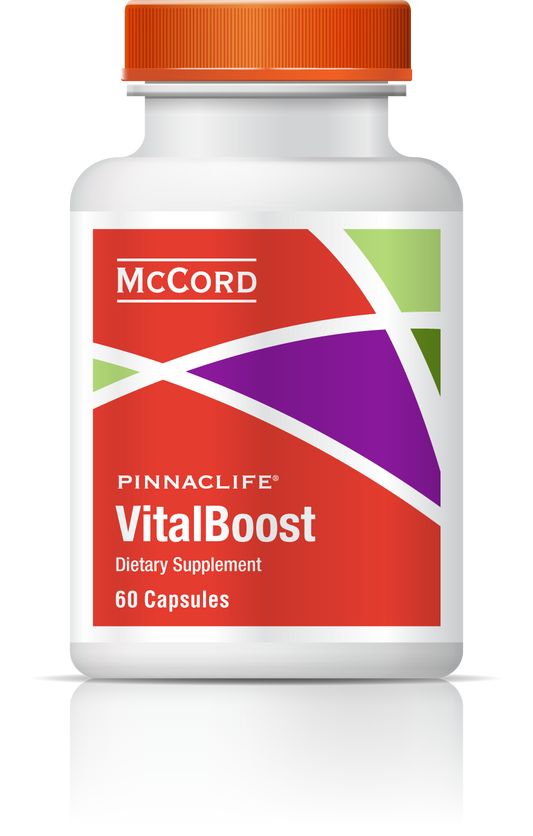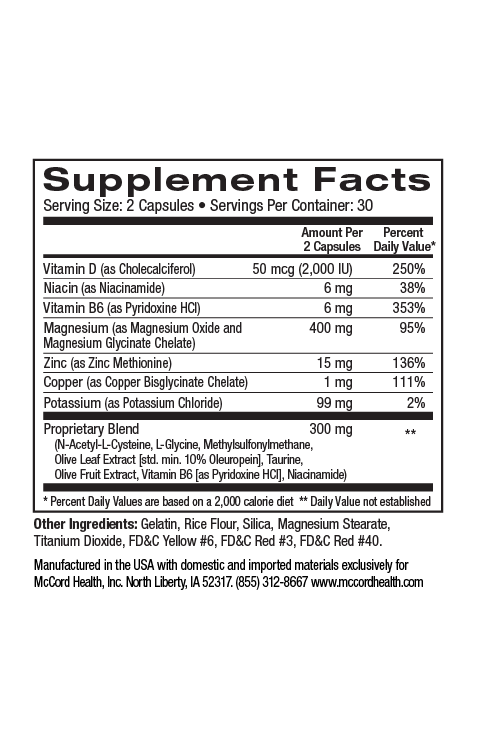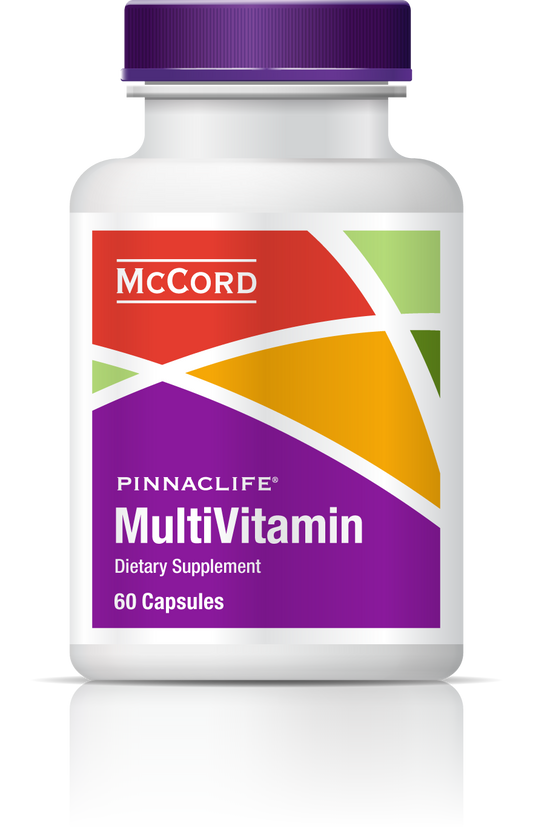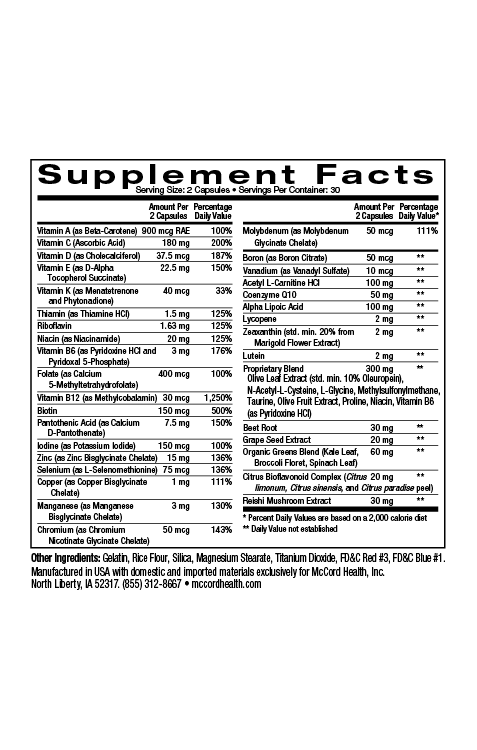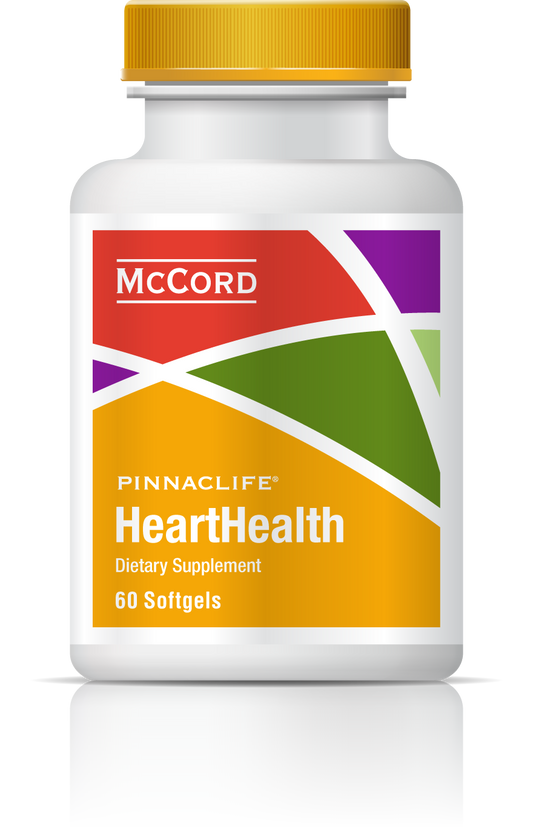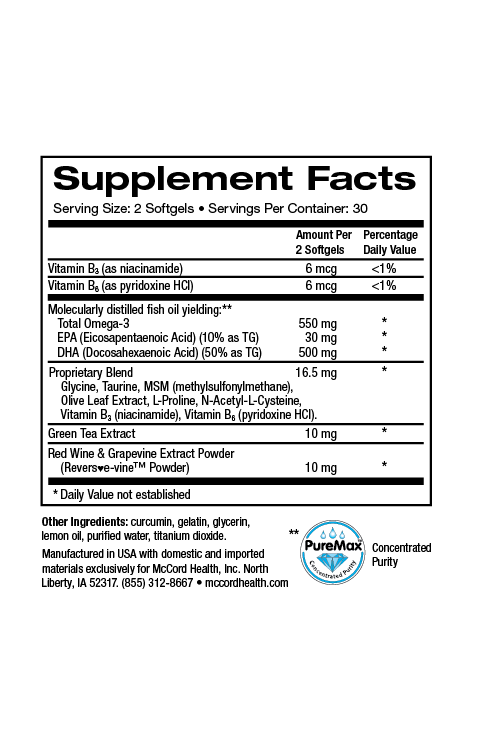C-Reactive Protein (CRP) is a biomarker that indicates inflammation throughout the body and is closely tied to cardiovascular risk. CRP may also indicate cancer, infection, auto-immune disease, and more. Natural nutrients like omega-3, fiber, curcumin, hydroxytyrosol, and magnesium may help reduce CRP and associated risks.
- Inflammation plays a role in almost all disease processes
- Biomarkers are an indication of overall health
- C-reactive protein (CRP) is a biomarker for inflammation
- A healthy diet like the Mediterranean diet can lower your CRP levels
- Proprietary Blend supplements contain many ingredients found in the Mediterranean diet including olive polyphenols and antioxidants
- Getting your CRP levels checked is a good idea to monitor your overall health and should be discussed with your doctor
Inflammation Signs and Symptoms
Inflammatory processes play a role in almost all disease processes, and you may experience it in several ways. You are probably familiar with common inflammatory symptoms such as painful and swollen joints, nasal congestion, asthma, or skin conditions, but inflammation may also be causing other problems without you even knowing. This is especially true of long-term chronic inflammation that can contribute to disease processes like heart disease, brain disorders, auto-immune diseases, and even cancer.
Detecting Chronic Inflammation
Many times, in medicine, we use “biomarkers” to help paint a picture of the body’s overall health, and identify specific risk factors.
You are probably familiar with some biomarkers like cholesterol and triglycerides that can indicate cardiovascular risk. Your blood glucose levels and Hemoglobin-A1C serve as biomarkers for diabetes.
But you may not be familiar with one of the most important biomarkers for inflammation that can often be overlooked – your C-Reactive Protein, or CRP.
What is C-Reactive Protein (CRP)?
C-Reactive Protein (CRP) is a compound produced by the liver when your body is experiencing inflammation. Higher amounts of inflammation cause higher levels of CRP in your blood.
What Does CRP tell us?
CRP is most often discussed in the context of heart disease and cardiovascular risk, however it can also indicate other inflammatory conditions and risk factors.
In addition to cardiovascular conditions, elevated CRP could be an indicator of infection, cancer, auto-immune disorders (IBS, Rheumatoid arthritis, lupus), injuries, and more.
Normal CRP blood levels
- Less than 1 mg/L is considered normal and low risk for cardiovascular disease
- Between 1-3 mg/L is considered moderate cardiovascular risk
- Above 3 mg/L is considered high cardiovascular risk
- Above 10 mg/L is generally seen with acute conditions, such as after a heart attack
As mentioned before, the elevated levels could also be associated with other conditions not related to cardiovascular risk. CRP is just a general marker indicating excessive inflammation that is a key component of many disease states.
Testing CRP
You typically won’t notice any symptoms from having slightly elevated CRP levels, so the only way to know is through a blood test. A high-sensitivity CRP test (hs-CRP) is needed to detect the levels below 10 mg/L.
What if my CRP is high?
You need to speak with your doctor about what your elevated CRP levels indicate in your specific case. Your doctor will likely look at your medical history and other blood tests to help determine the exact cause of your elevated levels, and help you develop a strategy to address the issue.
Lowering Your CRP
While there is not a direct treatment to lower your CRP levels, there are plenty of ways you can remedy inflammation throughout your body which will subsequently lower your CRP levels, and therefore lower your overall risk.
It probably won’t surprise you to learn that a healthy diet is one of the most effective ways of lowering your CRP. The Mediterranean Diet is known for reducing CRP and that is thought to be in part from some key nutrients found in that diet that have proven anti-inflammatory effects:1
Olives (hydroxytyrosol / oleuropein):
Consumption of olives and olive oil has been associated with decreased cardiovascular risk and decreased levels of inflammatory markers including CRP, especially in persons with increased cardiovascular risk suggesting a role as a possible natural remedy.2,3 The beneficial effects are attributed to the polyphenols and antioxidants found in olives, especially hydroxytyrosol and oleuropein.2,3
Olive polyphenols are the basis of the patented Proprietary Blend ingredient found in all McCord Research Proprietary Blend Supplements with the highest dose provided by ImmuneHealth.
Fiber:
High fiber diets are associated with lower CRP levels and this is thought to contribute in part to the lower risk of cardiovascular disease and cancer.4 One study showed for every 10 grams of fiber consumed daily, the odds of having an elevated CRP declined by 11%.11 Prebiotic fiber that supports healthy intestinal bacteria (probiotics) is especially beneficial as the healthy bacteria are known to provide anti-inflammatory effects throughout the body. Proprietary Blend Digestive Health provides 11 grams of soluble prebiotic fiber per serving.
Omega-3 (DHA / EPA):
Increasing intake of essential omega-3 fatty acids DHA and EPA have been shown to lower CRP. Some studies indicate that DHA has a stronger CRP lowering effect than EPA.5,6
Proprietary Blend HeartHealth provides 500 mg of DHA and 100 mg of EPA per serving from ultra-pure molecularly distilled fish oil, harvested sustainably with Friend of the Sea certification.
Turmeric (curcumin):
Turmeric contains many compounds called curcuminoids that are known for their anti-inflammatory properties. Research shows that absorbable forms of curcumin may help to reduce CRP levels.7
Proprietary Blend uses a highly absorbable soluble curcumin in the BrainHealth, JointHealth, CalmMind, and SleepHealth products.
Magnesium:
Dietary Magnesium intake is associated with lower CRP levels, and also lower risks of cardiovascular disease, brain disease, and more.8,9
Absorbable forms of magnesium are used in Proprietary Blend BoneHealth, BrainHealth, CalmMind, and SleepHealth supplements.
Vitamin C:
In people with CRP levels above 1 mg/L, Vitamin C was shown to reduce CRP as effectively as using a cholesterol-lowering statin drug.10
Proprietary Blend TotalHealth MultiVitamin provides 300% of your daily value of Vitamin C.
Be Proactive
If you have had your CRP checked and were told it was high, you should definitely consider incorporating some of the above into your daily routine to help reduce inflammation and lower your overall risk.
Even if your numbers came back as normal, it's still a good idea to be proactive and incorporate some of the above nutrients to maintain your healthy levels.
If you have never had your levels checked, be sure to discuss the CRP test with your doctor and determine if you could benefit from knowing your level.
References
- Moss JWE, Ramji DP. Nutraceutical therapies for atherosclerosis. Nat Rev Cardiol. 2016;13(9):513-532.
- Vilaplana-Pérez C, Auñón D, García-Flores LA, Gil-Izquierdo A. Hydroxytyrosol and potential uses in cardiovascular diseases, cancer, and AIDS. Front Nutr. 2014;1:18.
- Souza PAL de, Marcadenti A, Portal VL. Effects of Olive Oil Phenolic Compounds on Inflammation in the Prevention and Treatment of Coronary Artery Disease. Nutrients. 2017;9(10).
- Ma Y, Griffith JA, Chasan-Taber L, et al. Association between dietary fiber and serum C-reactive protein. Am J Clin Nutr. 2006;83(4):760-766.
- Bowden RG, Wilson RL, Deike E, Gentile M. Fish Oil Supplementation Lowers C-Reactive Protein Levels Independent of Triglyceride Reduction in Patients With End-Stage Renal Disease. Nutr Clin Pract. 2009;24(4):508-512.
- Allaire J, Couture P, Leclerc M, et al. A randomized, crossover, head-to-head comparison of eicosapentaenoic acid and docosahexaenoic acid supplementation to reduce inflammation markers in men and women: the Comparing EPA to DHA (ComparED) Study. Am J Clin Nutr. 2016;104(2):280-287.
- Sahebkar A. Are Curcuminoids Effective C-Reactive Protein-Lowering Agents in Clinical Practice ? Evidence from a Meta-Analysis. Phytother Res. 2014;28:633-642.
- King DE, Mainous AG, Geesey ME, Woolson RF. Dietary magnesium and C-reactive protein levels. J Am Coll Nutr. 2005;24(3):166-171.
- Dibaba DT, Xun P, He K. Dietary magnesium intake is inversely associated with serum C-reactive protein levels: meta-analysis and systematic review. Eur J Clin Nutr. 2014;68(4):510-516. doi:10.1038/ejcn.2014.7.
- Block G, Jensen CD, Dalvi TB, et al. Vitamin C treatment reduces elevated C-reactive protein. Free Radic Biol Med. 2009;46(1):70-77.
- Krishnamurthy V, WeiG, Baird B, Murlaugh M, Chonchol M. et. Al. High dietary fiber intake is associated with decreased inflammation and all-cause mortality in patients with chronic kidney disease. Kidney International. 2012;81(3):300-6
Disclaimer: These statements have not been reviewed by the FDA. These products are dietary supplements and are not intended to treat, cure, or prevent any disease. The decision to use these products should be discussed with a trusted healthcare provider. The authors and the publisher of this work have made every effort to use sources believed to be reliable to provide information that is accurate and compatible with the standards generally accepted at the time of publication. The authors and the publisher shall not be liable for any special, consequential, or exemplary damages resulting, in whole or in part, from the readers’ use of, or reliance on, the information contained in this article. The publisher has no responsibility for the persistence or accuracy of URLs for external or third party Internet websites referred to in this publication and does not guarantee that any content on such websites is, or will remain, accurate or appropriate.

